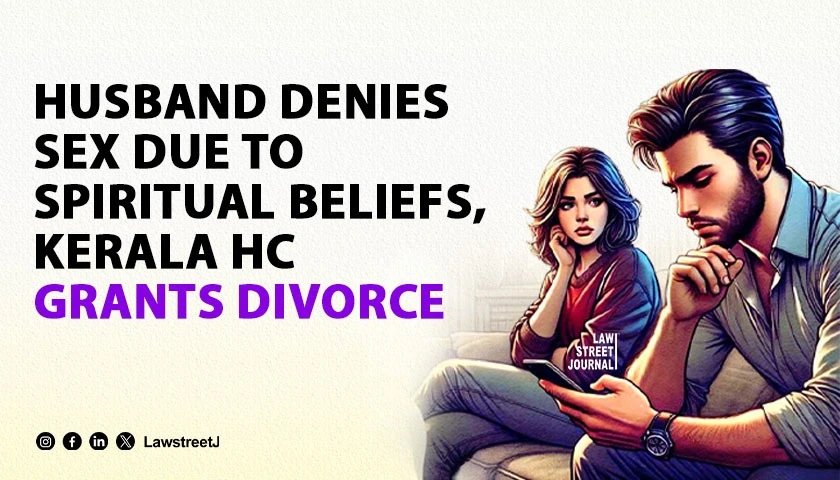Kerala: The Kerala High Court has upheld a Family Court’s decision granting divorce to a woman who alleged that her husband’s excessive spiritual pursuits and refusal to engage in a physical relationship constituted mental cruelty under the Hindu Marriage Act.
A Division Bench comprising Justice Devan Ramachandran and Justice M.B. Snehalatha dismissed the husband’s appeal against the Family Court’s judgment, reaffirming that compelling a spouse to adopt specific spiritual practices and neglecting marital responsibilities amounts to mental cruelty.
Case Background:
The matrimonial appeal challenged the judgment dated 30.10.2024 in OP No.224 of 2022 of the Family Court, Muvattupuzha, which had granted divorce under Section 13(1)(ia) of the Hindu Marriage Act, 1955.
The wife had alleged that apart from abstaining from sex, her husband prevented her from pursuing a postgraduate course, compelled her to live according to his superstitious beliefs, and frequently left her alone to go on pilgrimages. She also claimed that he had misappropriated her stipend money while she was studying and had even sent her messages expressing his desire for a divorce.
Previously, the wife had filed for divorce but withdrew the petition after the husband apologized and promised to improve. However, his behavior reportedly remained unchanged, leading her to seek legal separation again.
Court’s Observations
The High Court, while reviewing the case, stated:
“The specific case of the petitioner is that due to the disinterest and indifferent attitude of the respondent in family life and not having sex with her, she is suffering mental agony and distress in her matrimonial life with the respondent.”
The bench further emphasized:
“A marriage does not grant one partner the authority to dictate the other spouse’s personal beliefs, whether spiritual or otherwise. Compelling the wife to adopt his spiritual life, causing emotional distress to her, amounts to mental cruelty.”
The Court also referenced a Supreme Court ruling in Roopa Soni v. Kamalnarayan Soni [AIR 2023 SC 4186], which held that grounds for divorce must be assessed with a liberal perspective, recognizing evolving societal norms.
Additionally, the court cited its own recent ruling in Anilkumar V.K. v. Sunila.P (2025), reiterating that cruelty in marriage is subjective and must be evaluated on a case-by-case basis.
The bench took note of the husband’s frequent temple visits, which were confirmed during his cross-examination, stating that his pattern of taking leave from work for spiritual pursuits supported the wife’s allegations that he prioritized religion over marital obligations.
Final Judgment
In its concluding remarks, the court observed:
“The evidence on record would show that the mutual love, trust, and care between the spouses has been lost, and the marriage has been irretrievably broken, as rightly found by the learned Family Court.”
The husband’s appeal was dismissed, with both parties bearing their respective legal costs.
Case Title: XX v. XX (Mat.Appeal No.1037 of 2024)











